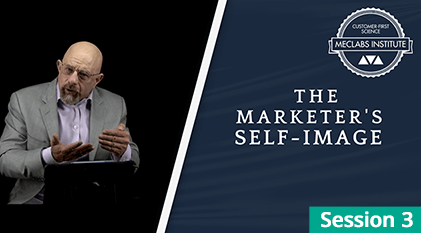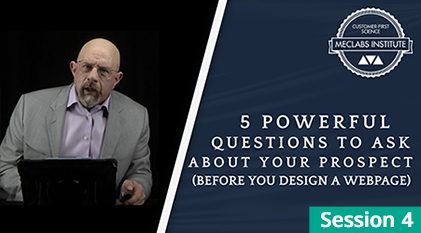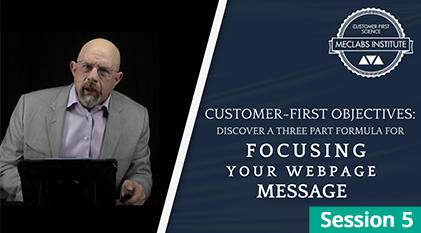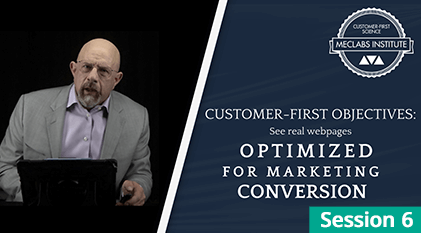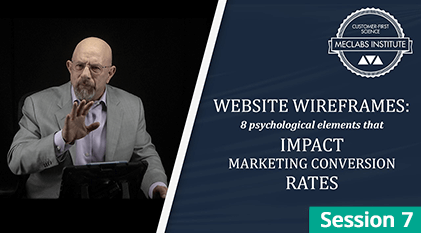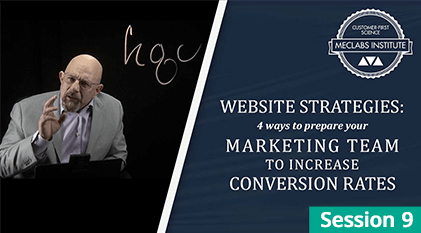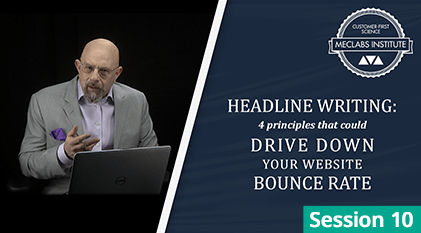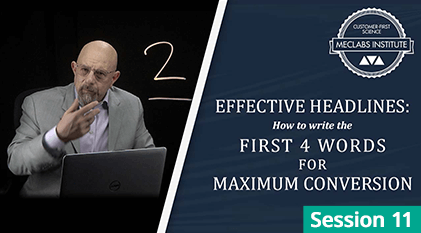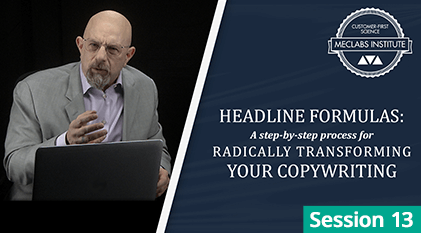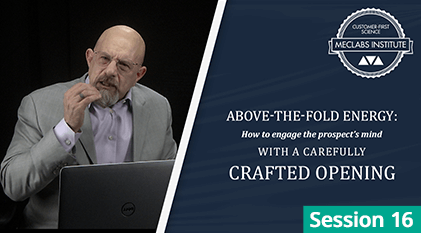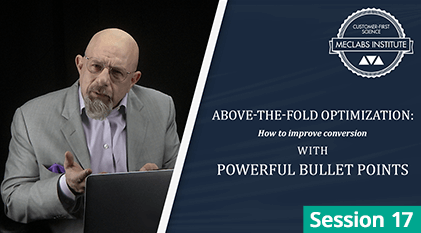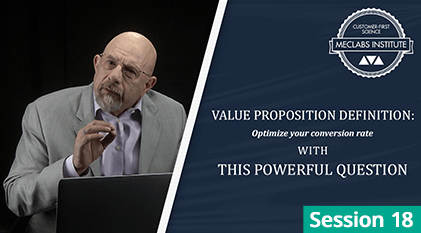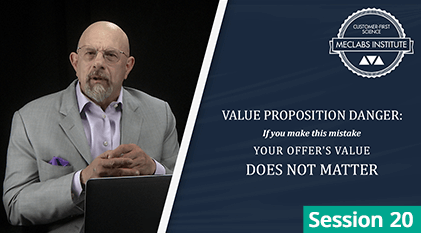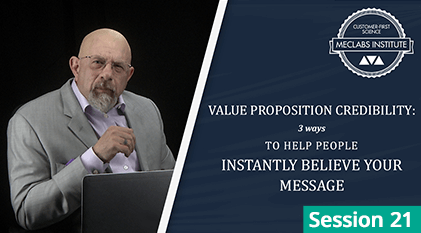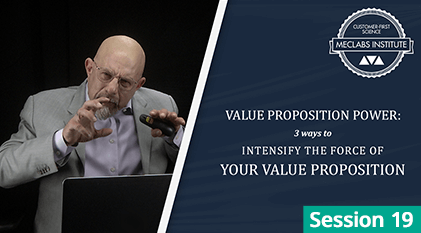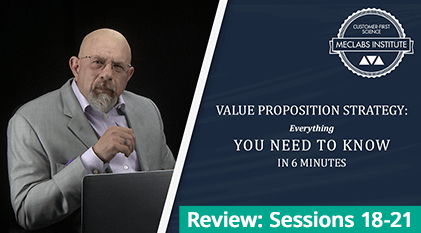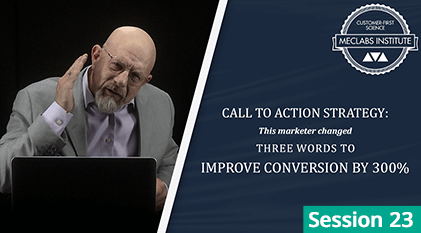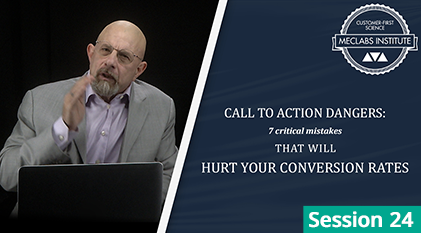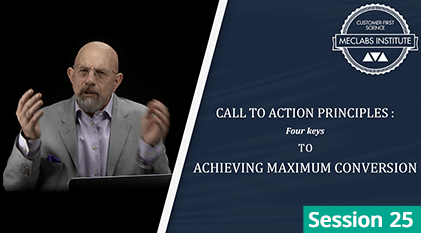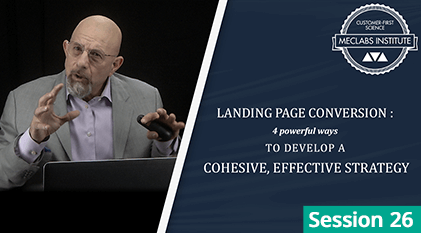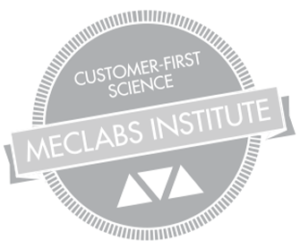Review for Sessions #18 – #21
Value Proposition Strategy: Everything you need to know in 6 minutes
To help you retain and apply the principles of the last four FastClasses, Flint McGlaughlin reviews lessons derived from the 16 case studies and 40 principles taught in those sessions.
Here are some of the most important insights from this class:
- Separate the means from the end. Focus on the customer’s experience of the value.
- The task of the marketer is to maximize PERCEIVED value and minimize PERCEIVED cost.
- The world does not need “expert” marketers; the world needs marketers who are expert at thinking like consumers.
- Do not make claims; foster conclusions.
- A value proposition focuses on a specific customer segment.
You can watch the full video above, or jump ahead to these key takeaways:
- 0:00 Value Proposition Strategy: Everything you need to know in 6 minutes (review of sessions #18 – #21).
- 0:57 Insights about the definition of a value proposition.
- 1:42 Insights about the force of a value proposition.
- 2:50 Insights about Micro-Yes #3: YES, I understand.
- 3:36 Insights about Micro-Yes #4: YES, I believe.
- 4:12 Insights about Micro-Yes #5: YES, I want this now.
- 4:30 Insights about Micro-Yes #6: YES, I want this from you.
- 4:51 Checklists – questions you can ask yourself and your team to help your marketing.
To get immediate help with your marketing challenges, just contact Flint and his team: F.McGlaughlin@MECLABS.com.
Essential Course Resources
Understanding Customer Experience: 3 quick marketing case studies (including test results)
Value Proposition Definition: Optimize your conversion rate with this powerful question
Value Proposition Power: 3 ways to intensify the force of your value proposition
Value Proposition Danger: If you make this mistake your offer’s value does not matter
Value Proposition Credibility: 3 ways to help people instantly believe your message
Course Retention Exercise
This quiz is carefully designed based on the latest learning technology in order to help you improve retention of the key principles.



